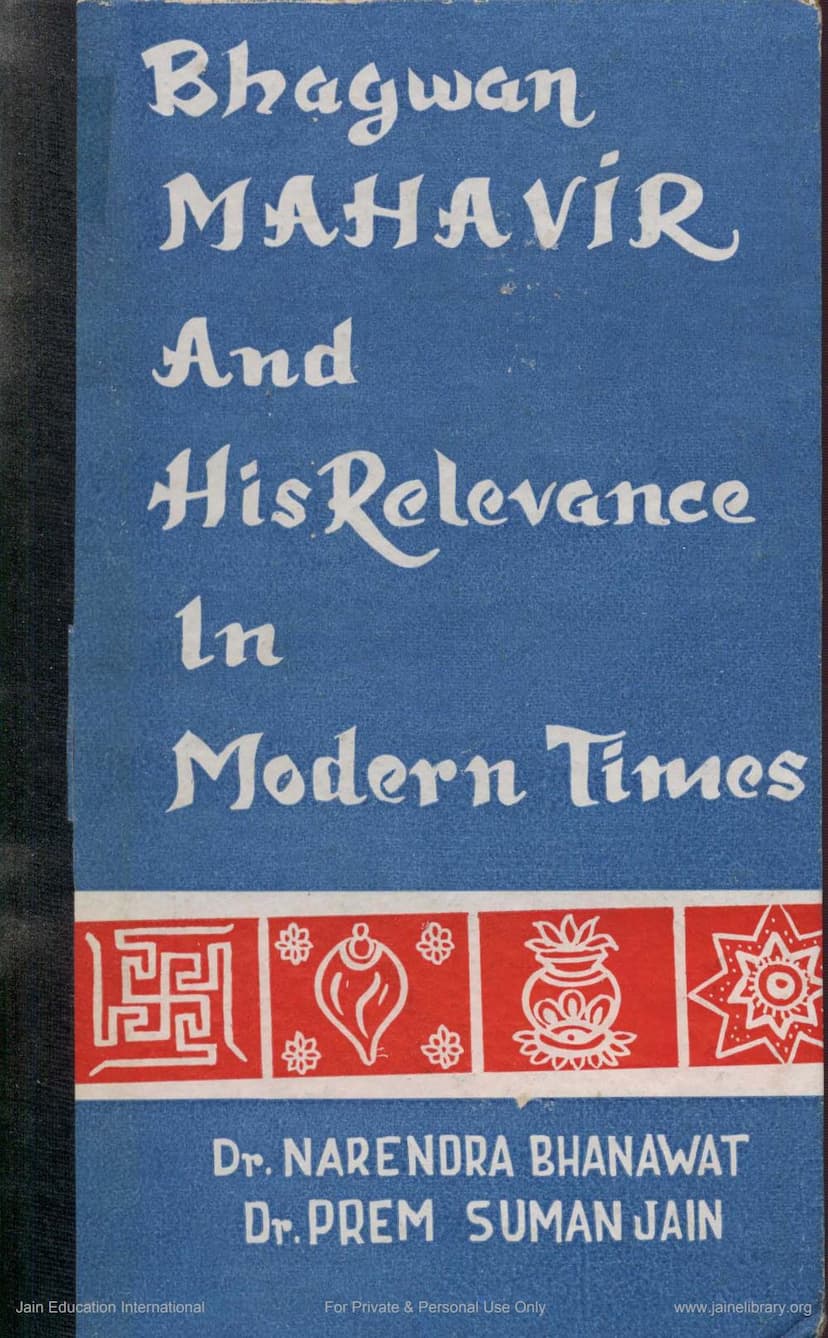Bhagavana Mahavira And His Relevance In Modern Times
Added to library: September 1, 2025

Summary
This book, "Bhagwan Mahavir and His Relevance in Modern Times," published in 1976 by the Akhil Bharatvarshiya Sadhumargi Jain Sangha, aims to explore the enduring significance of Lord Mahavir's teachings in the contemporary world. The publication commemorates the 2500th anniversary of Lord Mahavira's Nirvana.
The volume is a collection of scholarly articles from various contributors across India, covering diverse themes related to Mahavir's philosophy and its relevance today. These themes span across religion, philosophy, science, language, and literature.
Key themes and areas explored in the book include:
- Philosophy of Life: Articles delve into Mahavir's core philosophical tenets, such as Ahimsa (non-violence), Aparigraha (non-possession), Anekantavada (the doctrine of manifold aspects), and Syadvada (the doctrine of conditional predication). These concepts are analyzed for their applicability to modern issues like world peace, individual responsibility, and ethical living.
- Relevance in Modern Times: A significant portion of the book focuses on how Mahavir's teachings can provide solutions to contemporary challenges. This includes discussions on:
- World Peace: The role of non-violence and Anekantavada in resolving international conflicts and fostering understanding.
- Social Responsibility: Mahavir's views on the individual's role within society and the importance of social harmony.
- Economic Principles: The economic implications of Jain ethics, such as Aparigraha and honesty, and their potential to address issues of wealth disparity and exploitation.
- National Character: How Mahavir's emphasis on individual discipline, self-reliance, and equality can contribute to building a strong national character.
- Education: The foundations of Jaina philosophy in education, including its aims, curriculum, teaching methods, and the pupil-teacher relationship, highlighting aspects like universal education in the mother tongue and self-purification.
- Scientific Aspects of Mahavir's Teachings: Several articles explore the scientific underpinnings of Mahavir's philosophy, particularly in relation to concepts like atomism, the nature of matter (Pudgala), the universe, and the theory of Samatvayoga (equanimity). Comparisons are drawn between Mahavir's insights and modern scientific discoveries in physics and psychology.
- Language and Literature: The book touches upon the linguistic heritage of Jainism, particularly the role of Prakrit dialects in propagating Mahavir's teachings and its influence on the development of languages like Hindi.
- Comparative Philosophy: Some articles draw parallels between Mahavir's doctrines and the philosophies of Western thinkers like Bertrand Russell, highlighting the universal appeal and applicability of Jain thought.
The editors express their gratitude to the contributors for their valuable articles and to those who assisted in the publication. They hope the volume will foster a better understanding of Lord Mahavir's teachings and offer insights into solving today's pressing problems.
In essence, the book presents Lord Mahavir not just as a historical religious figure but as a profound thinker whose philosophical framework, rooted in principles of non-violence, equality, and rational inquiry, offers timeless wisdom and practical guidance for navigating the complexities of the modern age.